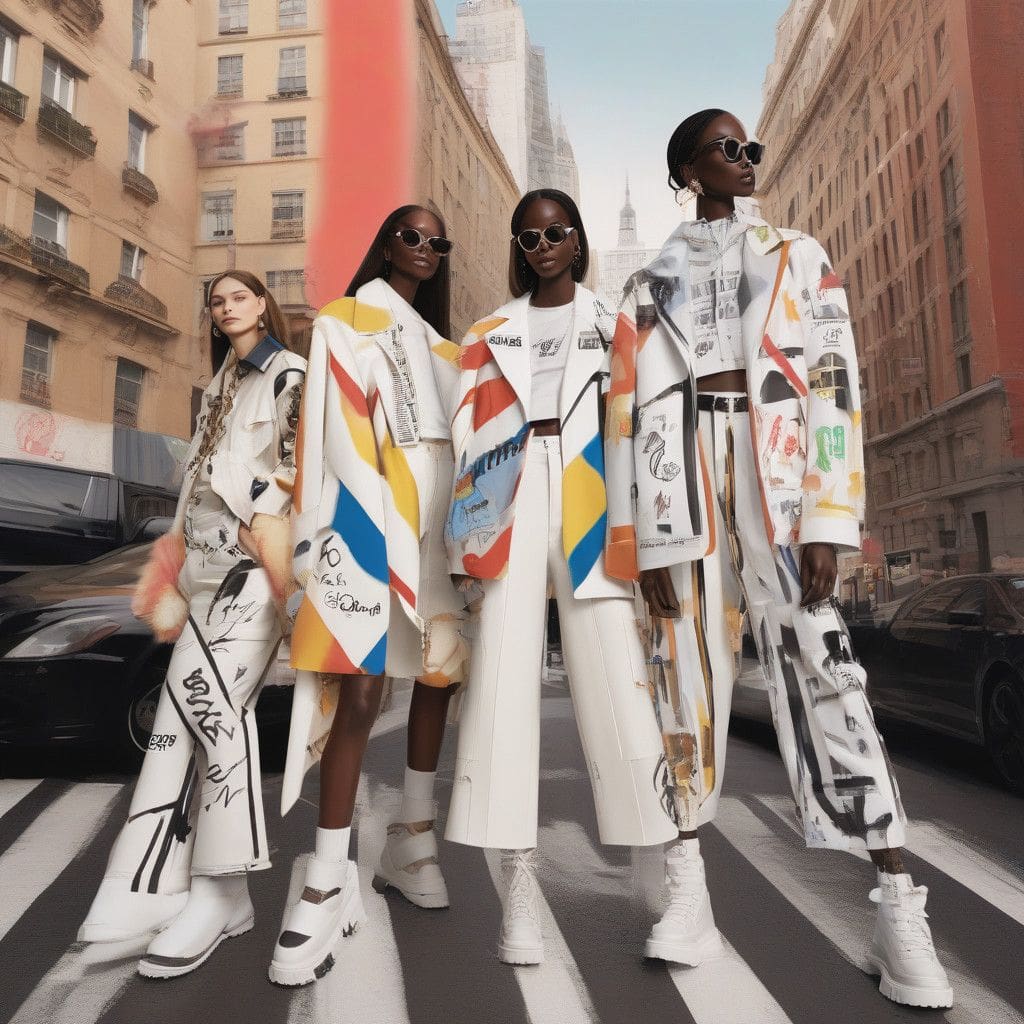In the fast-paced world of fashion, brands often navigate turbulent waters. For Off-White, a brand renowned for bridging streetwear with luxury, recent years have posed significant challenges. The unexpected death of founder Virgil Abloh, coupled with strategic missteps and market fluctuations, has left the brand striving for a revitalization strategy under the leadership of new CEO Cristiano Fagnani.
At the recent New York Fashion Week, Off-White showcased its Spring/Summer 2025 collection on a public basketball court in Brooklyn, a nod to the brand’s deep roots in urban culture. This venue, while less radical than legendary designer Martin Margiela’s 1989 show on a derelict Paris playground, brought an authentic street atmosphere that resonates with Off-White’s origins. The choice also underscores the brand’s enduring connection to New York City, which has long been central to its identity and its influences.
Creative director Ib Kamara emphasized the importance of this relationship, noting, “New York has always been the first love for the brand — and America generally.” The creativity and vibrancy of American youth culture continue to play a pivotal role in shaping Off-White’s direction.
Off-White’s latest collection, dubbed “Duty Free,” takes inspiration from the global traveler—specifically highlighting a journey from Ghana that reflects Abloh’s heritage. This appreciation for cultural narratives not only enhances the brand’s storytelling but also underscores a significant aspect of its DNA: the integration of varied cultural influences into fashion. As Fagnani stated, “Off-White was never a luxury brand… it’s about cultural value over luxury craft.” This reiteration of core values aims to steer the brand back to its roots.
Challenges Ahead
Despite these efforts, Off-White’s problems have not evaporated. Since Abloh’s passing in 2021, demand for the brand’s offerings has decreased significantly. An attempt to pivot towards higher-priced products alienated many core customers, leaving inventory levels inflating uncontrollably. This decision was compounded by difficulties faced by its parent, New Guards Group, and the acquisi-tion of a controlling stake in Off-White by Louis Vuitton, further complicating the brand’s market presence and strategic direction.
Fagnani notes the “critical situation” he inherited when he took the helm in May 2023, driven not just by positioning challenges but also external pressures prevalent across the luxury and streetwear sectors. The reality is stark: sales figures have plummeted, and the brand has lost some of its once-esteemed retail partners.
In an attempt to reset, Fagnani is focused on rejuvenating Off-White’s image and maintaining connections with both old and new customers. “When you have a lot of turbulence around you, my take was to reset, and take one step back to move forward,” he asserts, aligning closely with the brand’s original ethos while pushing into new, diverse creative avenues.
Revitalization Strategies
Revitalizing the brand involves re-establishing its iconic status in popular culture. Recent collaborations have been a step in the right direction. Off-White dressed performers like Usher for the Super Bowl and created looks for musicians Doja Cat and Tinashe at Coachella, aiming to cement its presence back into the cultural zeitgeist. At New York Fashion Week, the brand attracted significant attention with rapper NLE Choppa walking the runway, signaling a desire to engage once more with influential figures in music and entertainment.
The introduction of the Vulc 779 skate shoe in partnership with British-Nigerian artist Olaolu Slawn further demonstrates Off-White’s commitment to intertwining art with fashion. This collaboration with a high-profile artist adds depth to the brand’s vision while tapping into the growing market for streetwear and sneaker culture.
Fagnani’s plan also emphasizes expanding product offerings to include more women’s leather goods and accessories. Currently, the customer base is predominantly male, making diversification a strategic priority to enhance revenue streams. Moreover, reviving vital partnerships, particularly with Nike, is critical. The previous collaborations sold at substantial premiums, providing a strong incentive to both the brand and its retail partners.
The Legacy of Virgil Abloh
While the strategies move forward, there’s an inevitable conversation surrounding Abloh’s legacy. His vision for Off-White was about community, challenging norms, and pushing boundaries. As Kamara articulates, “That’s what sets Off-White apart from every other brand. It’s a melting pot of amazing cultures coming together.” Acknowledging Abloh’s unparalleled influence encourages a more profound exploration of cultural narratives in Off-White’s future collections.
The challenge remains to ensure this innovative spirit pervades its foundation, avoiding the pitfall of becoming just another luxury label devoid of cultural relevance. As Off-White seeks to reclaim its standing, the intersection of creativity, culture, and community will be crucial.
Conclusion
In summary, as Off-White navigates its way through a post-Abloh era, the path to revitalization is a multifaceted endeavor rooted in reconnecting with cultural values while innovating for a broader audience. Through strategic partnerships, a mindful approach to branding, and a return to its core aesthetic principles, Off-White has the potential not only to recover but to thrive anew in the ever-changing landscape of fashion. The next few seasons will be critical in demonstrating the brand’s capacity to evolve while honoring its rich heritage.












